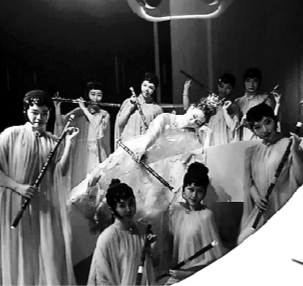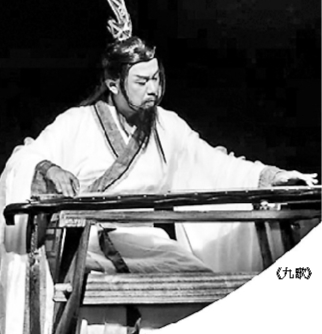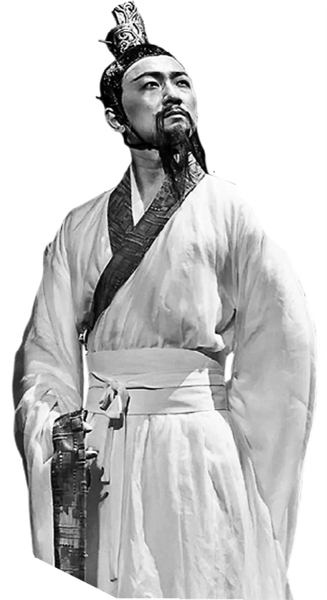Folk Music "Instrumental Drama": New Exploration or Playing the Piano?



Originally, China national instrumental music only showed musical functions, but now an erhu, an guqin and a bamboo flute have to be endowed with dramatic functions and become a role in drama. Folk musicians not only play music, but also interpret characters. This is a new form of folk music performance recently — — Instrumental Drama: From the National Instrumental Drama and Xuanzang Westbound by the Central National Orchestra in 2017 to the Multimedia Folk Drama and Nine Songs staged at the Hunan Grand Theatre a few days ago, five folk dramas with similar performances have appeared in China.
The performer should play both guzheng and Qu Yuan.
Although these five works have different titles, such as "National Instrumental Drama", "Music Theater, National Orchestral Music", "Cross-border Fusion Stage Drama" and "Multimedia Folk Music Drama", they are all so-called "National Instrumental Drama" in the form of folk music performance, incorporating drama, dance, multimedia and other elements. — Originally, national instrumental music was only a deduction of music, but now it has begun to deduct stories and dramatic characters; Folk music players not only play music, but also sometimes perform, and even use chanting to express characters: in the performance of Nine Songs, guzheng players should interpret Qu Yuan; In "Dayu Governing Water", the erhu player should perform Dayu; In "The Music of the Flute", the bamboo flute player should interpret the musical spirit; In Xuanzang’s Westbound Journey, the huqin is used to represent the stone pan tuo, and the pipa is used to represent the goddess; In Peach Blossom Fan, the flute represents Hou Fangyu and the pipa represents Li Xiangjun. In this form, the performer should not only have superb performance skills and musical understanding, but also have strong performance ability.
Take the multimedia folk music drama "Nine Songs" as an example. The drama shows what Qu Yuan saw and heard during his trip to Hunan through three acts and nine movements, and shows Qu Yuan’s mental journey of creating "Nine Songs", and interprets each work in "Nine Songs" by means of various artistic means — — There are not only characters, but also poems, singers, dances and the creation of multimedia scenes. In addition to playing Qu Yuan with the guzheng, the erhu plays the role of Mrs. Xiang, Da Ruan plays the role of Xiang Jun, Yu and Xiao play the role of fisherman, Shan Gui plays the role of flute and Hebo plays the role of pipa. When the national orchestra needs to play, it moves on the platform, and dancers are interspersed at any time.
In recent years, five folk music "instrumental dramas" have been staged.
A survey by Beijing Youth Daily reporter found that national instrumental drama is a new form of folk music performance that has emerged in the past two years. The Central National Orchestra invited Wang Chaoge, the director, to direct Impressions of Chinese Music and See Chinese Music Again, which started with the integration of drama elements into folk music concerts, and Xuanzang Westbound quietly rose in folk music performances with "folk music drama", especially this year. — Tang Junqiao Bamboo Flute Orchestra of Shanghai Conservatory of Music performed "The Sound of the Flute" which showed the development of China’s flute, Nanjing National Orchestra performed the music theater "Peach Blossom Fan" created by Guo Wenjing, Chongqing Opera House and Chongqing Symphony Orchestra performed the cross-border multimedia stage play "Dayu Harnessing Water", and Hunan Song and Dance Theatre just premiered "Nine Songs". For a time, folk music drama has become a popular product for folk bands to open up the performance market.
Performance rehearsal has occupied 80% of the performer’s time.
Can folk music still be performed like this?
Folk music performers have also played music since ancient times. The development of Chinese folk music is inseparable from the excellent cultural heritage and the emergence of colorful works, as well as the wonderful interpretations of performers. However, the rise of folk music drama has invisibly added extra performances to actors and increased their pressure. Liu Guangyu, an erhu player who played Dayu in "Dayu Governing the Water", told the reporter of Beiqing Daily that in addition to playing, the actors should also experience the role from the body and image. These "extra" characters, for instrumental actors, only account for 20% of the rehearsal, but the performance accounts for 80%. She crawls on the floor every day, which is very exhausting. In addition, like Impression of Chinese Music and Xuanzang’s Journey to the West, the role played by the performer should also be read aloud. All these are not the specialty of the performer. If musicians are asked to turn their musical experience into a dramatic performance, will music concerts become a sideline for musicians in the long run?
When watching these "folk music dramas", the reporters of Beiqing Daily also found that most of the "folk music dramas" are not so much "dramas" as "music, dance, poetry and painting". Most of the works are based on the adaptation of national instrumental music works into performance forms, and the performers put on role costumes, and the performances add various elements of dance, drama and multimedia lighting to present a contrast atmosphere — — It is entirely possible to get rid of these external packaging and let the concert be performed cleanly. Can a performer complete the drama performance and communication with a musical instrument in his hand? Is folk music "instrumental drama" a new form and genuine, or is it a concept and over-packaging? This is an unsolved problem in the performance of "folk music drama" at present, and it is undoubtedly related to how far the folk music "instrumental music drama" can go.
Text/reporter Lun Bing